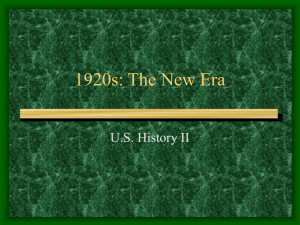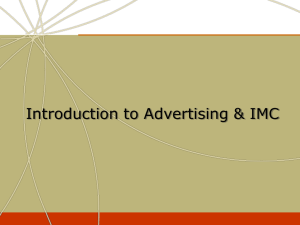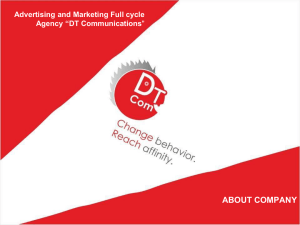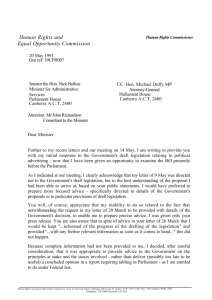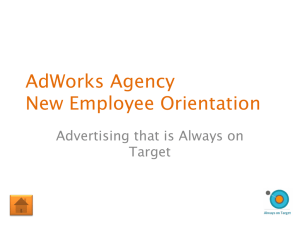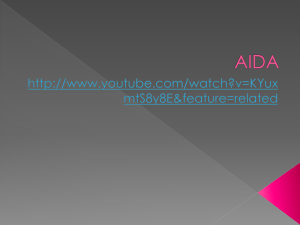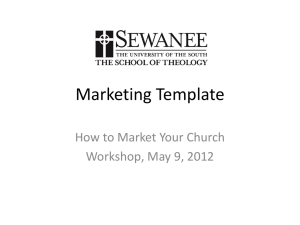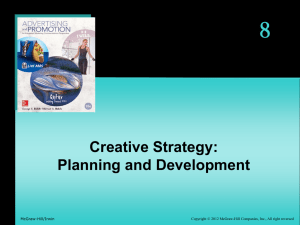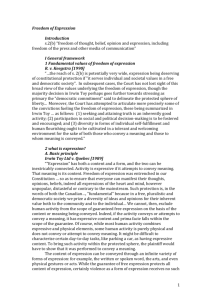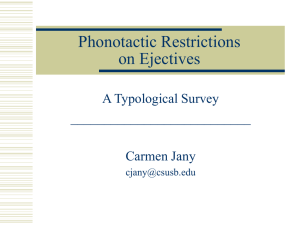Talking about an alcohol marketing ban….why not?
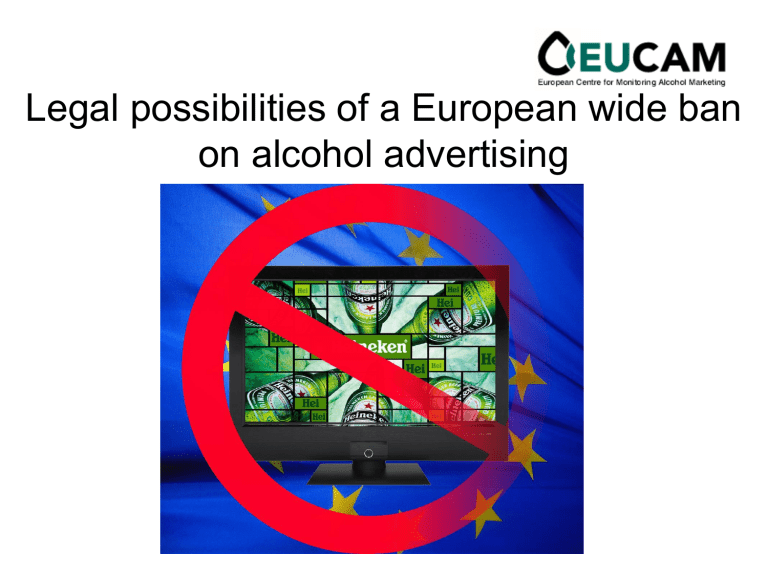
Legal possibilities of a European wide ban on alcohol advertising
•
EUCAM: European Centre for Alcohol Marketing
• The European Centre for Monitoring Alcohol Marketing or EUCAM was established in
2007. The Board of EUCAM is by STAP (The Netherlands), ACTIS (Norway);
AV.OG.Til (Norway); IOGT-NTO Sweden, Eurocare Italia and PARPA (Poland).
•
EUCAM is set up to collect, exchange and to promote knowledge and experience about alcohol marketing throughout Europe. The objectives of EUCAM are:
1. Promoting the Monitoring of Alcohol Marketing
2. Promoting and disseminating impact research
.
Introduction
• Voluntary rules by the industry are generally ineffective to protect young people (de Bruijn et al 2010, Vendrame
& Pinsky 2010; Babor et al 2010) which underlines the need for legal restrictions of alcohol advertising
• Econometric studies (Saffer 1991; Saffer 2002; Saffer &
Dave 2006) suggest that overall bans of alcohol marketing can be successful in decreasing the total alcohol consumption of adolescents.
In violation with EU Law?
• Existing alcohol marketing restrictions in Norway,
Sweden and France show that national alcohol advertising bans do not necessarily violate EU law.
Norway
• Complete ban on alcohol advertising, upheld after several court decisions in previous years (de Bruijn &
Roseth 2009).
• Court of Oslo (2009): Advertisement bans create ‘virtual monopoly’ for products and brands that were marketed before the placement of the ban and therefore make it hard for new products and brands to reach consumers.
• However, the Court also noted that a ban of alcohol advertisements is still justified if it is suitable and necessary to uphold the state’s alcohol policy.
• Ban not only affects direct marketing but also indirect marketing (e.g. advertorials) (Grill case 2011).
Sweden
• Shows the difficulty in upholding an overal ban.
• The European Court of Justice left it up to the national courts to determine whether the advertising ban was suitable and necessary (C-405/98).
• The Swedish market Court spoke against the ban, and new legislation was passed allowing print advertising for products over 16% alcohol volume (Baumberg &
Anderson 2008).
France
• Shows that alcohol advertising bans in certain marketing channels (eg television and sport sponsorship) can be upheld before European Court.
• The alcohol industry has challenged but failed to suppress the legal foundation of the Loi Evin (Johansen
2009):
– In 2004, Bacardi took Loi Evin to the European Court and lost (Johansen 2009; C-262/02 & C-429/02).
Practical considerations
• It is likely that in most European countries a comprehensive alcohol advertising ban at the national level is legally possible to protect minors and to prevent harmful alcohol use.
• It complies with fundamental EU rights, provided that sufficient communication channels for advertising (with content restrictions) are to be kept open.
EU competency to create an overall advertising ban
• EU has limited power in making legislation, because the main focus is on creating a single European market
• However, European restrictions on advertising tobacco, gambling and prescriptive drugs show that there are possibilities of the EU to protect its citizens by adopting extensive advertising bans.
• A European comprehensive alcohol advertising ban can be justified on health or on economic grounds.
Justification on grounds of protecting public health (1)
• Ban might be considered to be trade constrictive.
• EC Treaty (2006) article 28 stipulates that “Quantitative import restrictions and all measures with equivalent effect shall be prohibited.”
• However, even if the policy measure is considered to be trade-distorting the instrument can be justified if it is
“proportionate” and “appropriate” (Baumberg & Anderson
2008).
Justification on grounds of protecting public health (2)
• Article 30 of the EC Treaty states that ‘the provisions of
Articles 28. . . shall not preclude prohibitions or restrictions . . . justified on grounds of . . . the protection of health and life of humans’.
• Clear link between exposure to alcohol advertising and youth alcohol drinking behavior (Anderson et al 2009;
Smith & Foxcroft 2009) = an important argument in favor of a ban is the protection of public health.
Proportionate?
• Less restrictive, cheaper and equally efficient alternatives for a comprehensive advertising ban available?
– informative educational campaigns are ineffective measures (e.g. Babor et al 2010)
– content restrictions or partial volume bans will still lead to exposure of minors (STAP 2011)
Justification on economic grounds
• EU has the competence to harmonize legislation for the implementation of the internal market (goods, services)
(article 95 of the EC Treaty , article 57 & paragraph 2, article 66 of the EC Treaty. )
• Harmonization of Member States‘ legislation was used as an argument for introducing an EU directive on
Tobacco Advertising (Alegre 2003).
• European wide ban was used to streamline the large variety of national restrictions.
Conclusion
• France, Norway and Sweden show that a ban on alcohol marketing is not in conflict with EU legislation.
• Tobacco, gambling and prescriptive drugs show that the
EU is competent to protect its citizens by adopting extensive advertising bans
• When considered trade-distorting, a European ban can be justified on health grounds when the policy instrument proposed is seen as “proportionate” and “appropriate”.
• Alternatively, a European ban can be justified on economic grounds, wiping away unfair competition between member states by harmonizing the regulations
